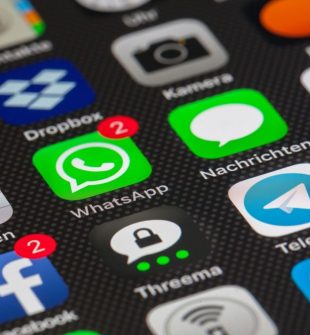Messenger apps have become an integral part of our lives, connecting us with friends, family, and colleagues instantly, no matter where they are in the world

These apps have revolutionized the way we communicate and have made it easier than ever to stay connected. In this article, we will explore the world of messenger apps, their evolution over time, and why they are so important to tech enthusiasts.
Introduction to Messenger Apps:
Messenger apps, also known as instant messaging apps, are applications that allow users to exchange messages in real-time. They provide a platform for text-based conversations, but many also offer additional features like voice and video calling, file sharing, and even group chats. The popularity of messenger apps can be attributed to their convenience, ease of use, and the ability to connect with others instantly.
Historical Overview:

The journey of messenger apps dates back to the early days of the internet when popular names like ICQ and AOL Instant Messenger dominated the scene. These early apps allowed users to exchange messages with their contacts, marking the beginning of instant messaging. However, their functionality was limited, and they required users to be on the same platform to communicate.
As technology advanced, so did messenger apps. The introduction of smartphones opened up new possibilities, and apps like WhatsApp and Facebook Messenger emerged, taking instant messaging to a whole new level. These apps allowed users to send messages over the internet, bypassing traditional SMS services and reducing communication costs.
Over time, messenger apps became more than just a means of communication. They evolved into comprehensive ecosystems with features like voice and video calling, stickers, emojis, and even integration with other services like payments, gaming, and social media. Today, popular messenger apps like WhatsApp, Messenger, WeChat, and Line have billions of active users worldwide, making them an indispensable part of our digital lives.
Key Features and Benefits:
Messenger apps offer a range of features that make them appealing to tech enthusiasts. Some of the key benefits include:
1. Instant Communication: Messenger apps allow for instant communication, eliminating the need to wait for emails or rely on traditional SMS services.
2. Cost-Effective: By sending messages over the internet, these apps help users save on communication costs, especially for international conversations.
3. Rich Media Sharing: Messenger apps enable users to share photos, videos, and documents with ease, enhancing the overall messaging experience.
4. Group Chats: Group chats provide a platform for multiple people to engage in conversations, making it ideal for project collaboration, event planning, or simply staying connected with a group of friends.
5. Voice and Video Calls: Many messenger apps offer high-quality voice and video calling features, making it possible to have face-to-face conversations with contacts across the globe.
6. Privacy and Security: In response to growing concerns about data privacy, messenger apps have implemented end-to-end encryption to ensure secure communication.
The Future of Messenger Apps:
As technology continues to evolve, so will messenger apps. We can expect to see advancements in artificial intelligence, virtual reality, and augmented reality being integrated into these platforms, further enhancing the user experience. Additionally, the rise of chatbots and virtual assistants is likely to transform the way we interact with these apps, allowing for more personalized and intelligent conversations.
In conclusion, messenger apps have become an essential tool for tech enthusiasts, providing instant, cost-effective, and feature-rich communication. Their evolution from simple messaging platforms to comprehensive ecosystems has reshaped the way we connect with others. As we look to the future, these apps will continue to innovate, keeping us connected in an ever-changing digital world.
References:
– Mims, C. (2019). The history of chat apps. Retrieved from https://www.wsj.com/articles/the-history-of-chat-apps-11572851227
– Gonsalves, A. (2020). Instant messaging, explained. Retrieved from https://www.lifewire.com/what-is-instant-messaging-2654757





